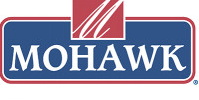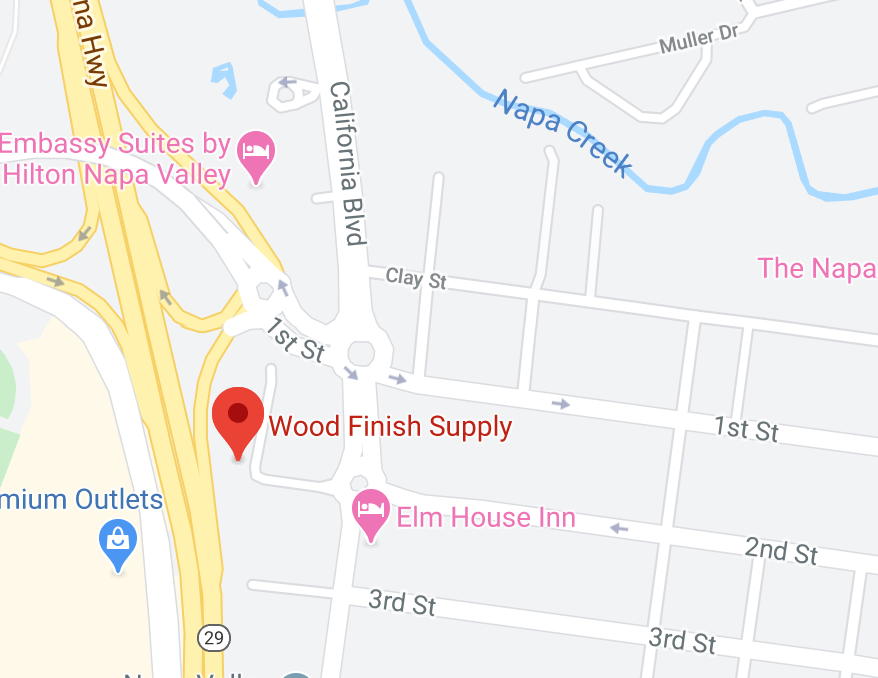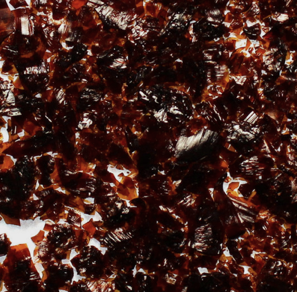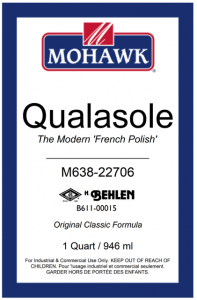|
Shellac Solvent:
Grain Alcohol vs. Denatured Alcohol
Bob Miller explains why you should head
to the local liquor store before mixing
and applying your next shellac finish.
Shellac is a wonderful finish with a fantastic
range of applications and possibilities. It can
range from an easy utility finish all the way
up to the finest of fine polished finishes.
Here is a way to make your shellac finishes
better and easier to use. This gets a little
scientific, but stick with me, it’s worth it in
the end.
It is very important to think about the
solvent used to dissolve the shellac. Most
people simply use commercially available
“denatured” alcohol. Denatured alcohol is
a general alcohol-based solvent used for a
variety of applications across many
industries. Mixed with shellac, it will
produce a serviceable finish. However, it has
some problems when it comes to shellac.
First, there is no industry regulation
regarding what precisely constitutes
denatured alcohol. This means that some
brands are cut with water to increase their
volume, often by as much as 20%.
Second, is that there is no way of knowing
what kind of alcohol was used to produce
the product. Some brands contain methanol,
a cheaper, more volatile, and dangerous
form of industrial alcohol that can be used
to bulk up the volume of solvent. This
inconsistency makes it difficult to predict
the behavior of the shellac both as it
dissolves and as it dries as a finish.
|
In short, denatured alcohol is an
unpredictable, dangerous, unhealthy, poor
quality solvent for shellac that will make
your finish harder to use as well as shorten
your life. Don’t worry though; I have a solution.
Prior to Prohibition here in the United
States, woodworkers would have simply
mixed their shellac with a high proof, grain
derived alcohol that contained a minimum of
water. It was only after Prohibition that all
of these denaturants were added to make
industrial alcohol undrinkable.
If you’re looking for a pure, consistent
supply of high-strength alcohol that
doesn’t contain this spectrum of
chemicals, think about the bottom shelf at
your local liquor store.
Everclear and Diesel are two brands
of nearly pure alcohol that contain less
than 5% water. They are commercially
available in most states and are the perfect
solvent for shellac, with no denaturant and
a minimum of water.
Once you switch to pure alcohol for your
shellac you will wonder how you ever got
along with denatured alcohol. Pure grain
alcohol will dissolve your shellac more
smoothly and will build your finish more
quickly. So, take a trip to your local liquor
store and pick up some solvent, give it a try
with shellac, and see what you think when
you’ve used a traditional solvent for your
traditional shellac finish.
Bob Miller is a custom furniture maker
and woodworker based in the Charles neighborhood of Boston.
Note: Everclear 190 is not available in all states.
See below.
|
‘Everclear 190’ is a 190 proof Ethanol.
Everclear 190 Grain Alcohol is currently banned in 14 states that have ruled 190 Proof Everclear Is Not Legal
(2023) include:
California – only 151 proof available
= 75.5% alcohol & 24.95% water
District of Columbia
Florida
Hawaii
Iowa
Maine
Maryland
Massachusetts
Michigan
Minnesota
Nevada
New Hampshire
New York
North Carolina
Ohio
Pennsylvania
Virginia
Washington
Everclear, (less than 190 Proof) available in the states above IS NOT Recommend for use as a solvent for shellac.
190 Everclear is a brand name of rectified spirit (also known as grain alcohol and neutral spirit) produced by the American company
Luxco (formerly known as the David Sherman Corporation).
It is made from grain and is bottled at 60%, 75.5%, 94.5% and 95% alcohol by volume (120,151, 189, and 190 U.S. proof respectively). |
Everclear 190 proof (5% distilled Water)
A good Solvent for making Shellac
is legal in 36 states.
States where ‘Everclear 190’ Is Legal
(as of 2023)
Alabama
Alaska
Arizona
Arkansas
Colorado
Connecticut
Delaware
Georgia
Idaho
Illinois
Indiana
Kansas
Kentucky
Louisiana
Mississippi
Missouri
Montana
Nebraska
New Jersey
New Mexico
North Dakota
Oklahoma
Oregon
Rhode Island
South Carolina
South Dakota
Tennessee
Texas
Utah
Vermont
West Virginia
Wisconsin
Wyoming
|
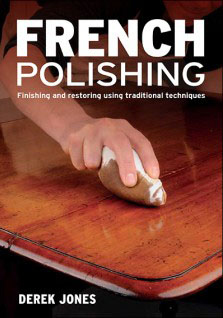 Techniques for applying layers of shellac to achieve a warm glow
Techniques for applying layers of shellac to achieve a warm glow
